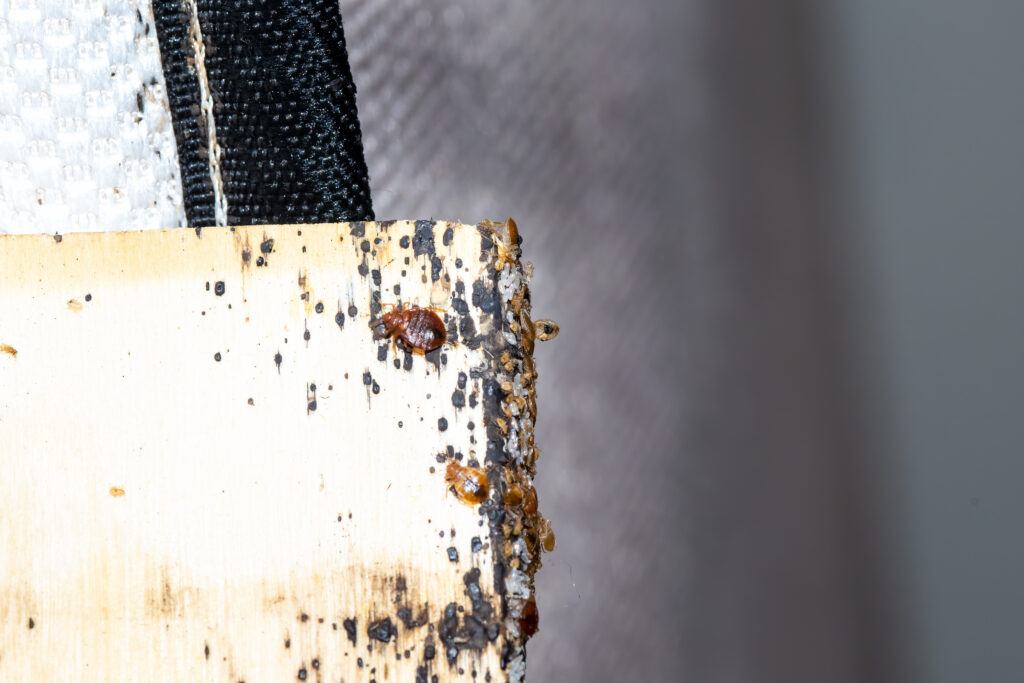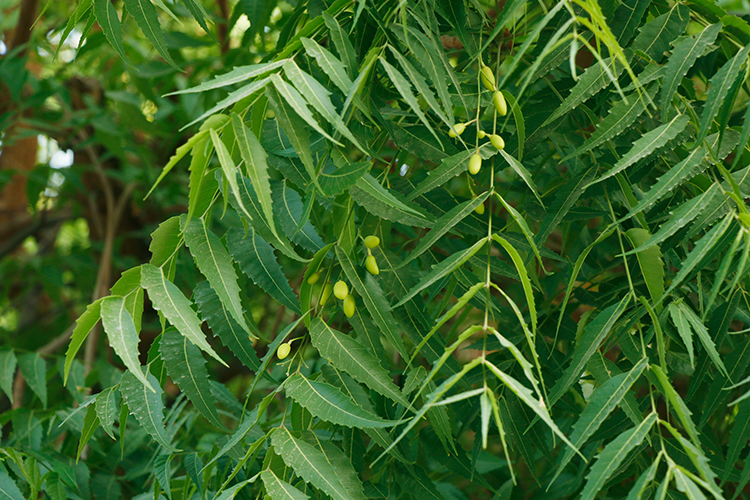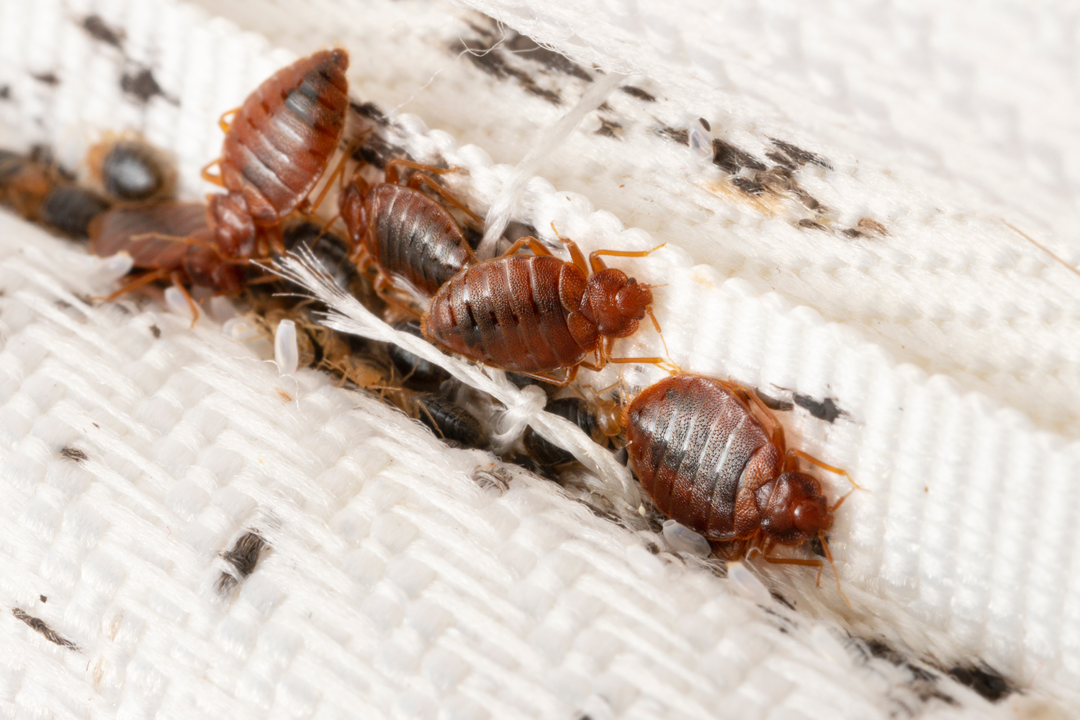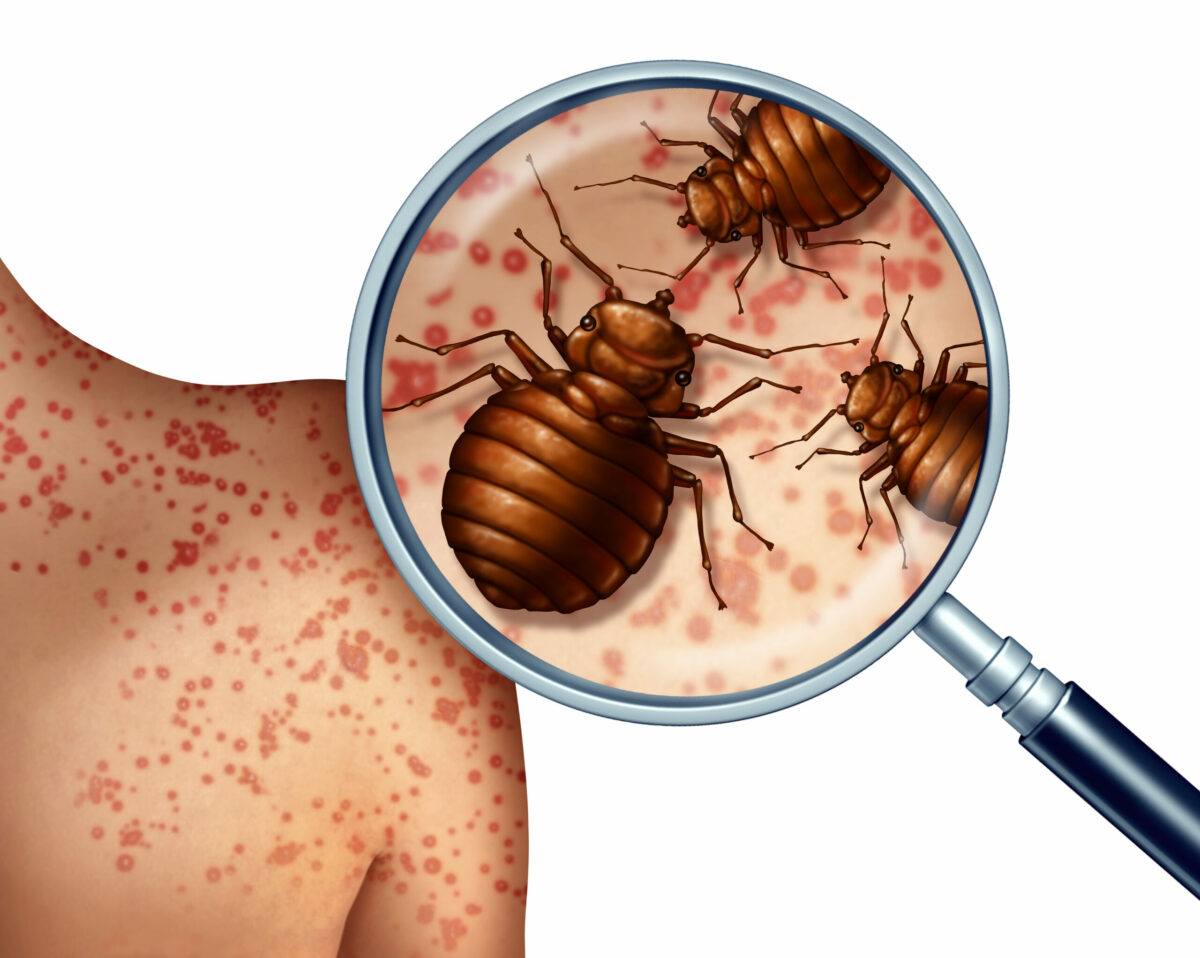Dealing with a bed bug infestation can be incredibly frustrating, time-consuming and expensive. If you’re looking for a natural, eco-friendly solution to this pesky problem, you might have come across neem oil as a potential remedy. Let’s discuss what neem oil is, and how it could help reduce or eliminate bed bugs from your home.
Neem oil is derived from the neem tree (Azadirachta indica), which is native to India. It has a long history of medicinal and insecticidal uses, and its popularity has grown globally as an alternative to synthetic insecticides. This natural solution could provide a simpler and safer way to tackle your ongoing bed bug issues without further compromising your home environment or health.
Key Takeaways
- Neem oil is a natural insecticide derived from the neem tree with a long history of use.
- It can help manage bed bug infestations and reduce the negative impacts on your home and health.
- Using neem oil safely and effectively requires understanding its properties, risks, and alternative pest control options.
Understanding Bed Bugs and Infestations

I’ve been dealing with those pesky bed bugs for many years, and I must say, it’s a problem that can quickly become overwhelming. First, let’s understand what bed bugs are. They belong to the Cimicidae family and are small, blood-sucking insects. They love to call our beds home, which is where they get their name from.
These tiny bugs are not only irritating, but an infestation can be a nightmare for any homeowner. One of the reasons I find them to be tough pests to deal with is their resilience. Bed bugs can go without food (a.k.a. our blood) for several months, making them incredibly difficult to eradicate.
So, what exactly is an infestation? Well, it doesn’t take a lot of bed bugs to make our lives miserable. Just a couple of these small insects can multiply rapidly, leaving us with hundreds, or even thousands, of bugs creeping around in our bed sheets, sofas, and carpets. Yikes! They usually hide around cracks, folds, and seams in furniture or mattresses, only coming out at night to feed on us while we sleep. Not the best bedtime company!
I should mention that, although they can be annoying and their bites may cause minor itching and irritation, bed bugs are not known to transmit any diseases. However, that doesn’t mean we should let them coexist with us. If left unchecked, a bed bug infestation can get out of hand, leading to stress, sleepless nights, and even social isolation.
If you know you have bed bugs, or think you do, check out my article on how to prepare your home for a bed bug treatment.
Now that we know a bit more about these bothersome critters, it’s time to explore natural solutions like Neem oil to help us regain our peaceful sleep and rid our homes of these uninvited guests. The battle between Neem oil and bed bugs is about to begin!
Understanding the Neem Tree and Its Oil

Let me tell you a bit about the Neem tree. Native to India, it’s a pretty amazing tree that loves sunlight. If you ever visit India, you might see a lot of them around as they’re quite popular in the country. One of the most fascinating aspects of this tree is the oil it produces. Extracted from its seeds, Neem oil has a ton of uses and benefits.
Neem oil contains a special ingredient called azadirachtin. It’s a powerful compound with insecticidal properties, which is why people have been using it for centuries as a natural pest control solution. I know it sounds like a bit of a mouthful, but azadirachtin is crucial when it comes to combating bed bugs.
Now, Neem oil is not just about its insect-fighting abilities, it’s also packed with other beneficial compounds. In fact, it’s been used in traditional Indian medicine (Ayurveda) for ages. From treating skin issues to helping with dental care, this versatile oil has got it all.
So, Neem oil is like nature’s own multi-purpose solution, and when it comes to bed bugs, it can really be a game changer. By using it wisely, we can tackle those pesky bed bugs naturally and in a way that’s in harmony with our environment. Pretty cool, right?
Insecticidal Properties of Neem Oil
Now, let me tell you about the insecticidal properties of neem oil. Neem oil is derived from the seeds of the neem tree, also known as Azadirachta indica. This natural oil not only works wonders on plant pests but also kicks out those annoying bed bugs from your home.
The main component of neem oil that exhibits insecticidal properties is Azadirachtin. It’s a potent insect growth regulator and disrupts the hormonal system of bed bugs. They have difficulty in feeding and reproducing, eventually reducing their population. What makes it even more interesting is that it’s safe for human skin. So in case you’re worried about having a reaction, don’t be!
Also, did you know that neem oil has anti-fungal and anti-bacterial properties? That’s right! So while it’s working hard to get rid of your bed bug problem, it’s also taking care of other potential risks lingering around your home.
I highly recommend using a mixture of neem oil with other essential oils like lavender or tea tree oil as a natural solution for bed bug infestations. You can apply this on your bedding, mattresses, and box springs to keep those pesky bugs at bay.
Oh, and don’t forget to use a cold-pressed neem oil. Cold-pressing maintains the insecticidal properties while keeping the oil safe and skin-friendly. So next time you’re dealing with bed bugs, ditch the chemicals and go for a natural solution like neem oil. Trust me, your skin and the environment will thank you!
Natural Remedies: Neem Oil as a Solution
When it comes to dealing with bed bugs, I’ve discovered that neem oil is a natural and effective solution that can save me from those itchy, sleepless nights. As a natural pesticide, neem oil can be used to combat not just bed bugs, but many other types of insects too.
I was relieved to find out that using neem oil as an insecticide can prevent the harsh lingering odors, skin irritations, and detrimental effects on our health and the environment that are associated with chemical insecticides. Extracted from the seeds of the neem tree, this oil is biodegradable, non-toxic, safe for us, and gentle on our surroundings.
One thing I particularly appreciate about neem oil is its dual function as both a repellent and a natural pesticide for bed bugs. The strong smell of neem oil works as a natural repellent, keeping bed bugs and other insects away. At the same time, when neem oil comes into contact with the pests, it disrupts their reproductive cycle, movement, and feeding habits. This multi-functional approach helps to eradicate and prevent infestations effectively.
To use neem oil, I usually mix it with water and spray it onto mattresses, furniture, and any potential areas where bed bugs may hide. It’s essential to be consistent with the application and to reapply the neem oil every few days, primarily due to its biodegradable nature. Following a consistent treatment routine ensures that I prevent any chances of re-infestation.
In conclusion, using neem oil as a solution has proven to be an eco-friendly, safe, and effective method for tackling bed bug problems. Not only does it successfully combat these pesky insects, but it also serves as a natural repellent, protecting my home from future infestations.
Comprehensive Guide: Using Neem Oil Against Bed Bugs

Let me share with you my experience on how to use neem oil to combat those pesky bed bugs. Neem oil is a natural insecticide that can help you eradicate bed bugs without exposing yourself or your family to harmful chemicals.
First things first, you need to make sure you’re working with a high-quality neem oil. I recommend using cold-pressed, pure neem oil for the best results. Once you’ve got your neem oil in hand, it’s time to mix it with water. For every 1 ounce of neem oil, mix it with 10 ounces of water. You may add a few drops of dish soap to help the oil blend better with the water. After that, pour the solution into a spray bottle, and you’re good to go!
When it comes to application, consistency is key. I usually start by spraying my mattress, bed frame, and any cracks or crevices around my bed where those bugs might be hiding. Don’t forget to pay special attention to seams, edges, and folds in the fabric. I also make sure to spray my pillows, sheets, and blankets.
After treating the bedding, it’s time to tackle other areas nearby. Spray your neem oil solution on carpets, baseboards, and even electrical outlets—bed bugs are sneaky creatures and can hide anywhere! Once you’ve covered all potential hiding spots, give it some time to take effect. I would suggest waiting an hour or two before vacuuming or cleaning the treated areas.
Now comes the cleaning part. Regular vacuuming and cleaning are crucial in the fight against bed bugs. It’s essential to thoroughly clean and declutter your living space, as this will make it harder for bed bugs to find hiding spots. I make sure to wash all my bed linens and fabrics in hot water, as the heat helps kill any remaining bed bugs or eggs.
It’s important to remember that using neem oil is not a one-time solution. I usually repeat the process every week until I’m confident the bed bug problem is gone. Just like with any natural solution, patience and persistence are vital.
So there you have it! Using neem oil is an effective and natural way to tackle bed bug infestations, without resorting to harsh chemicals. Give it a try, and you might find that it works wonders for you too!
Effects of Neem Oil on Beneficial Insects
As I was researching neem oil’s effects on bed bugs, I also became curious about how it might affect beneficial insects like ladybugs, bees, and green lacewing larvae. After all, we don’t want to harm these helpful creatures while trying to fight off bed bugs. So let me share my findings with you regarding the effects of neem oil on beneficial insects.
First off, I’ve discovered that neem oil is generally considered safe for most beneficial insects. It’s important to remember that neem oil works as a natural pesticide by disrupting the growth and development of pests, rather than acting as a poison. This means that beneficial insects like ladybugs and green lacewings are very unlikely to be negatively affected by neem oil, since their life cycles are quite different from those of pests.
For example, ladybugs are ferocious predators of many garden pests, especially aphids. Neem oil doesn’t seem to bother them much and may even indirectly help them, as it repels or kills the insects they feed on. Green lacewing larvae, on the other hand, are also predatory insects. Their diet consists of several pests like mites and mealybugs, so they can also benefit from neem oil’s pesticidal effects.
One thing that is worth noting, though, is the potential effect of neem oil on bees. Bees play a crucial role in pollinating our plants, so it’s essential to make sure they are unharmed. Smaller concentrations of neem oil have been shown to be generally safe for bees, but it’s still advisable to avoid spraying neem oil on plants that are currently in bloom. This will minimize the chances of bees coming into contact with the oil.
In conclusion, I can confidently say that neem oil, when used properly, is a friend to beneficial insects. It’s a great natural way to protect our gardens and homes from pests without causing significant harm to the helpful critters that keep everything in balance. Just make sure to take the necessary precautions when using neem oil, especially around pollinating bees.
Potential Risks and Safety Measures
As a natural solution, neem oil offers a safer way to tackle bed bug infestations compared to harsh chemicals. However, it’s important for me to be aware of potential risks and take necessary safety measures while using it.
Firstly, I need to keep in mind that neem oil can be harmful to fish and other aquatic life. So, I should avoid using it near water sources or aquariums to prevent any potential harm.
While applying neem oil to my clothing and bedding, I must make sure they’re properly laundered afterward. This helps in removing any residue and preventing skin irritation.
Neem oil is not the only thing I can rely on in my battle against bed bugs. There are other methods to supplement the treatment. For instance, using heat treatment by running my clothes in a hot dryer for around 30 minutes or using a steamer on my furniture can be helpful in killing bed bugs.
When applying neem oil, it’s a good idea to mix it with alcohol as it helps in spreading the oil evenly on surfaces. But I should be cautious not to inhale the fumes, as it might cause irritation to my nose, eyes, and throat. Ventilation is crucial here, so I should keep windows open or use fans for proper air circulation.
Ticks are another concern, but neem oil is effective against them too. Just like with bed bugs, ensuring proper application and maintaining a clean environment can help in keeping ticks at bay.
In conclusion, neem oil is a natural alternative to tackle bed bugs and ticks. While it’s generally safer, it’s important for me to be aware of some risks and take proper safety measures to optimize its effectiveness and minimize any downsides.
Alternative Natural Solutions for Pest Control
When it comes to dealing with pests like bed bugs, I’m all about finding safe and effective natural solutions. So besides neem oil, there are other options worth exploring. Let’s talk about some alternatives that can help ease our infestation woes.
One of my favorite go-to alternatives is diatomaceous earth. This powdery substance is made from fossilized algae and acts as a natural, non-toxic insecticide. Sprinkling it around affected areas helps eliminate bed bugs by causing tiny cuts on their exoskeletons, leading to their dehydration. Plus, it’s safe for humans and pets, making it an appealing choice for anyone, like me, who prefers a more organic approach to pest control.
Another option worth considering is the use of essential oils. Many essential oils, such as lavender, eucalyptus, and tea tree, have been found to be effective against bed bugs. In my experience, simply diluting these oils with water and spraying them on potential hiding spots can help deter these pesky critters. The bonus? My home smells amazing in the process.
Speaking of smells, lavender is an especially popular choice due to its pleasant aroma and repellent properties. Not only can it help keep bed bugs at bay, but it has also been effective against other insects like moths and mosquitoes. I’ve personally had success with lavender sachets in my closet and under my mattress.
I believe that natural pest control is the way to go. Not only is it safer for us and our environment, but it’s also an inexpensive and readily available solution. Incorporating these home remedies into our daily routines can greatly reduce the chances of experiencing a nasty infestation.
In summary, there are several organic pest control methods out there that can help us tackle bed bug infestations. From diatomaceous earth to essential oils, it’s all about finding what works best for us and our homes. I encourage you to give these alternatives a try, as they might just save you from a whole lot of itching and scratching.

































